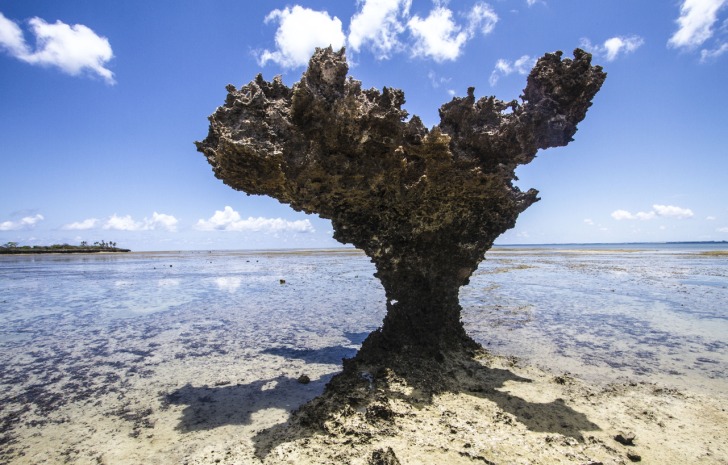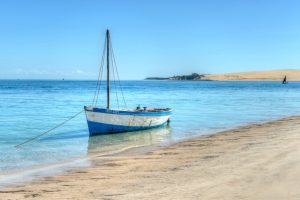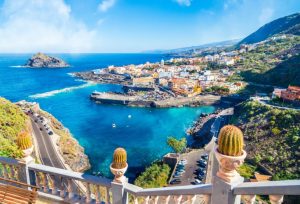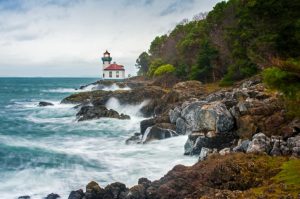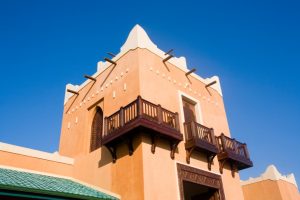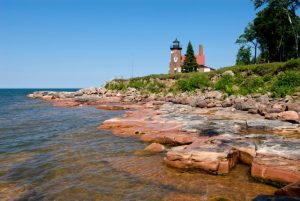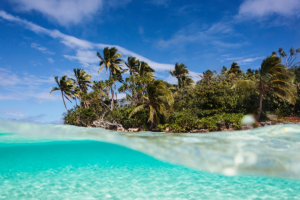 Mozambique : Safety by City
Mozambique : Safety by City
Mozambique - safety as a country
Comprising 32 islands off the northern Mozambique coast and stretching to the Tanzania border, the Quirimbas Archipelago is a quiet and stunning community with quaint towns, fancy private resorts, and more stunning beaches than you can imagine!
Ibo Island has the most hotels, and it’s easy to arrange boat trips to neighboring islands.
Plenty of watersport activities exist on each island, with the opportunity to visit uninhabited islands by boat, where fishermen may have set up camp for the season.
The Quirimbas Archipelago is an excellent destination to kick back, enjoy the sun and sand, have a few cold drinks, and relax.
The friendly and helpful locals will improve your stay even more.
Before traveling to this beautiful beach destination, it’s important to understand the warnings and dangers, the safest places to visit and those to avoid, safety tips, and other useful information.
Keep reading to learn more!
Warnings & Dangers in Quirimbas Archipelago

OVERALL RISK: LOW
While there are cautions to be wary of when visiting the Quirimbas Archipelago, the overall risk is safe. Residents are warm, helpful, and friendly toward tourists and have a relaxed mentality. Petty crime is the greatest threat to the islands, so if you use common sense, you’re unlikely to have issues.

TRANSPORT & TAXIS RISK: LOW
The towns are incredibly small, so requiring a taxi, bus, or other form of public transportation is unnecessary. Public ferries exist between islands, so keeping an eye on your belongings is important, but it’s not a major risk.

PICKPOCKETS RISK: MEDIUM
Pickpocketing in crowded places is the leading crime on the islands, and there’s a moderate chance of this occurring, especially in markets. To mitigate the risk, never display expensive items publicly and always keep a keen eye on your belongings. Also, take extra precautions in crowded places and locations frequented by tourists.

NATURAL DISASTERS RISK: MEDIUM
Since no natural barrier exists to protect the islands from storms, the Quirimbas Archipelago is highly susceptible to cyclones, which can be disastrous, since many structures are not robust and can collapse during storms. Flooding is another major issue in the area, leading to massive destruction, homelessness, and death.

MUGGING RISK: LOW
While parts of Mozambique have a high rate of violent crime, it’s rare in the Quirimbas Archipelago. This doesn’t mean you should tempt fate by wandering into secluded areas at night, but just use common sense and leave areas that seem unsafe.

TERRORISM RISK: LOW
No recent terrorist attacks have occurred across the country, but it’s important to continue to be aware of your surroundings, even in small island towns.

SCAMS RISK: HIGH
Scams are a regular occurrence across the country, including on the Quirimbas Archipelago. Tourists are always the main target since they bring money and are often not paying attention. Always double-check the change when using cash, and negotiate all services in advance. The best option is to book as many activities, transfers, and services online with your credit card as possible so you’re protected and aren’t exposed to scammers.

WOMEN TRAVELERS RISK: MEDIUM
The Quirimbas Archipelago is safe for females traveling alone with locals being respectful and friendly toward tourists. It’s important to note that unwanted attention could occur occasionally, but it’s easily dismissed. Always remember to be mindful of cultural sensitivity and follow the local dress codes to earn respect.

TAP WATER RISK: LOW
Tap water on the islands is not recommended for consumption due to poor purification methods and low-quality standards. Even though the water goes through a purification process, it is likely to contain parasites and illness-causing bacteria. Prioritizing your health and purchasing bottled water throughout your stay will eliminate issues.
Safest Places to Visit in Quirimbas Archipelago
All towns on the islands are considered safe, and Pemba, the large port city on the peninsula in Pemba Bay, the Cabo Delgado Province capital, is also safe for visitors.
Some of the best and safest places in the Archipelago include Quirimbas National Park, part of 11 southern islands, and the three main islands, Ibo, Matemo, and Quirimba.
As the Islands are not as heavily populated with tourists as other places in Africa, the beaches are safe to enjoy during the day.
Other safe destinations within the Archipelago include Vamizi Island and the Igreja De Nossa Senhora Rosaria (church).
Places to Avoid in Quirimbas Archipelago
While the Quirimbas Archipelago is a safe destination, it’s not advisable to go into the rural areas of Cabo Delgado due to the roaming militias.
Also, carjackings, armed robberies, theft, rape, and violent crimes are prevalent in this province.
The Cabo Delgado conflict continues to proceed due to inequalities created by natural gas deposits and minerals, as well as religious and political ideologies.
While visitors are perfectly safe on the islands and in Pemba, it’s essential to avoid passing through the province at all costs completely.
Safety Tips for Traveling to Quirimbas Archipelago
- Avoid Keeping your Wallet in the Back Pocket. One way to avoid being pickpocketed is to keep your wallet and phone in your front pocket. It’s simple for a skilled pickpocket to bump into you in a crowded place and simultaneously lift your wallet and phone. Stealing from your front pocket is much more difficult. The best option is to wear a money belt with a phone compartment completely hidden under your shirt.
- Avoid the Sides of Boats. When traveling on ferries or private boats between islands, many don’t have the safety features or life jackets that are typically required in Western countries, so you could fall overboard or become injured on deck. Taking proper boat precautions on slippery decks and potentially outdated watercraft will ensure you aren’t injured while exploring the islands.
- Be Aware of Police Harassment. Many visitors report being police harassment victims which may include bribery requests and robbery. If you’re threatened by a police officer or prompted for a bribe, immediately report this to the British High Commission to ensure they are aware of the incident. When meeting with the proper authorities, they will document your statement, so attempt to get the officer’s name.
- Be Prepared for Severe Weather. If you’re traveling to the Islands during the rainy season, be prepared for flooding, choppy waters, and not see the beautiful beaches in the photos. The rainy season runs from October to March, with constant rain that increases insect activity and can be dangerous due to the poor infrastructure in Mozambique. Be prepared with the proper clothing, bug spray, footwear, and other protective gear.
- Cover your PIN When Withdrawing Money. Withdrawing money from a secure, local bank is the best option, not a random street ATM. When withdrawing, always cover your PIN, as you never know who’s watching. Also, don’t flash the money once withdrawn from the ATM, as you don’t want to become a target. Additionally, don’t withdraw money at night since criminal activity increases once the sun goes down.
- Don’t Let Water Get in Your Mouth. Although this is difficult to avoid, keep your mouth and eyes closed while in the shower to prevent water from entering your body. Since the water is not purified to the same level as your home country, it’s likely contaminated with parasites and bacteria that can make you sick when ingested.
- Don’t Swim at Night. While you may be tempted to enjoy the warm Indian Ocean waters all day and night, sharks, and other ocean predators feed at night. Also, random rip currents can whisk you out to sea without anyone noticing, so drowning is a major concern. Additionally, visibility is low, so it can be difficult to find the shore if you venture out too far.
- Purchase Bottled Water. Since you will be covering your eyes and mouth while showering to avoid water consumption, stock up on bottled water. Upon arrival, go to the grocery store to purchase a case of water and restock as necessary throughout the trip. Don’t refill in the sink or water fountains; try not to get ice in your drinks, and wipe the opening of soda and beer bottles before drinking.
- Show Personal Identification. As a foreigner, you must always carry your passport with you. Unfortunately, this goes against travel tips of not carrying your passport in case it’s stolen, but checkpoints and patrols are common. Store your passport across your body and under your shirt using a lanyard. Also, only give your passport to officials, and if you’re unsure of your status, request to see identification before providing the required documentation.
- Store All Valuables at the Hotel. Never bring valuables like expensive electronics, jewelry, clothes, and other items in public, as they will make you a target. The best action is to blend in as best as possible by dressing like the locals and not drawing unwanted attention. Female travelers must also respect the local dress code, as Mozambique is a highly religious and sensitive society.
So... How Safe Is Quirimbas Archipelago Really?
The U.S., Canadian, and Australian Governments all warn visitors headed to Mozambique to exercise extreme caution due to terrorism, kidnapping, crime, and health issues.
However, the Quirimbas Archipelago doesn’t experience most of these issues, so the islands are perfectly safe to visit.
The only health threat is surrounding bacteria in the water, which can be avoided by purchasing bottled water.
How Does Quirimbas Archipelago Compare?
| City | Safety Index |
|---|---|
| Quirimbas Archipelago | 68 |
| Bazaruto Archipelago | 62 |
| Maputo | 32 |
| Vilanculos | 32 |
| Pemba | 29 |
| Inhambane | 45 |
| Deadwood (United States) | 80 |
| Sturgis (United States) | 80 |
| Pierre (United States) | 81 |
| Spearfish (United States) | 80 |
| Hill City (United States) | 83 |
| Temuco (Chile) | 31 |
Useful Information

Visas
Tourists from all countries are recommended to obtain a visa before going to Mozambique since there are no guarantees of securing a single entry visa at entry points. Also, ensure your visa is valid for six months following the departure date.

Currency
The country’s official currency is Mozambican Metica, which can be withdrawn for various ATMs in different towns on the Archipelago. The preferred bank card has a Visa logo, although MasterCard is becoming more widely accepted countrywide. Also, credit cards are accepted at most hotels but are not as common in rural areas.

Weather
Quirimbas Archipelago has a tropical climate, similar to other coastline towns, which experience the wet season, lasting from October to March, and the dry season from April to September. Due to the air moisture, the coastline receives the most rainfall throughout the year, including the Archipelago.

Airports
The closest airport to the Archipelago is in the port city of Pemba. You must take a ferry to your destination to get to the islands from the mainland. Pemba is a relatively safe city as well, so traveling through won’t present many issues, as long as you follow the guidelines of determining cab fares in advance and checking change.

Travel Insurance
Travel experts always advise purchasing travel insurance before leaving the country. In the event of lost or stolen belongings or flight and baggage delays, you are financially covered. Travel insurance is especially important when traveling to the Quirimbas Archipelago since most visitors spend sizable portions of time outside. As your medical insurance may not cover you in international destinations, travel insurance picks up the costs of emergencies and treatment.
Quirimbas Archipelago Weather Averages (Temperatures)
Average High/Low Temperature
| Temperature / Month | Jan | Feb | Mar | Apr | May | Jun | Jul | Aug | Sep | Oct | Nov | Dec |
|---|---|---|---|---|---|---|---|---|---|---|---|---|
| High °C |
31 | 31 | 31 | 30 | 30 | 28 | 28 | 28 | 29 | 30 | 30 | 31 |
| Low °C |
24 | 24 | 24 | 23 | 21 | 20 | 19 | 20 | 21 | 23 | 24 | 25 |
| High °F |
88 | 88 | 88 | 86 | 86 | 82 | 82 | 82 | 84 | 86 | 86 | 88 |
| Low °F |
75 | 75 | 75 | 73 | 70 | 68 | 66 | 68 | 70 | 73 | 75 | 77 |
Mozambique - Safety by City
| City | Safety Index |
|---|---|
| Bazaruto Archipelago | 62 |
| Inhambane | 45 |
| Maputo | 32 |
| Pemba | 29 |
| Quirimbas Archipelago | 68 |
| Vilanculos | 32 |
